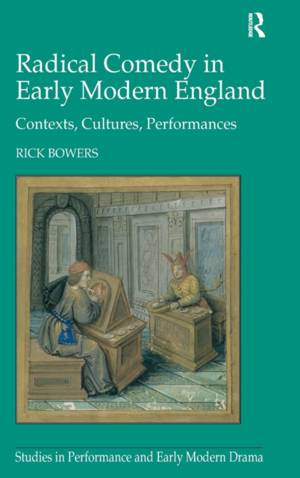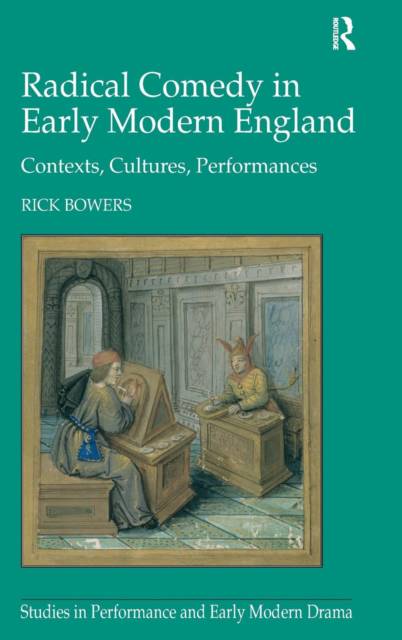
- Afhalen na 1 uur in een winkel met voorraad
- Gratis thuislevering in België vanaf € 30
- Ruim aanbod met 7 miljoen producten
- Afhalen na 1 uur in een winkel met voorraad
- Gratis thuislevering in België vanaf € 30
- Ruim aanbod met 7 miljoen producten
Zoeken
€ 305,45
+ 610 punten
Uitvoering
Omschrijving
Drawing on the generic and mythic strength of comedy and the theories of Bakhtin, Bergson, and Hobbes, this book identifies the radical nature of early modern English comedy. The satirical comedic actions that shape the "Shepherds' Play," Thomas Dekker's pamphlets, and the comic dramas of Marston, Middleton, and Jonson are all driven, Bowers points out, by an ability to criticize authority, assert plebeian culture, and insist on the complexity and innovation of human discourse. The texts examined (including The Jew of Malta, Metamorphosis of Ajax, Antonio and Mellida, Bartholomew Fair, The Alchemist, and A Chaste Maid in Cheapside) simultaneously create and employ standard comedic elements. Farce, absurdity, excess, over-the-top characters, unremitting irony, black humor, toilet humor, and tricksters of all types - such features and more combine to satirize medical, religious, and political authority and to implement necessary social change. Written with a narrative ease, Radical Comedy in Early Modern England shows how comic interventions both describe and reconfigure prevalent authority in its own time while arguing that, through early modern comedy, one can observe the changes in social behavior and understandings characteristic of the Renaissance.
Specificaties
Betrokkenen
- Auteur(s):
- Uitgeverij:
Inhoud
- Aantal bladzijden:
- 132
- Taal:
- Engels
- Reeks:
Eigenschappen
- Productcode (EAN):
- 9780754663805
- Verschijningsdatum:
- 18/06/2008
- Uitvoering:
- Hardcover
- Formaat:
- Genaaid
- Afmetingen:
- 156 mm x 234 mm
- Gewicht:
- 367 g

Alleen bij Standaard Boekhandel
+ 610 punten op je klantenkaart van Standaard Boekhandel
Beoordelingen
We publiceren alleen reviews die voldoen aan de voorwaarden voor reviews. Bekijk onze voorwaarden voor reviews.











